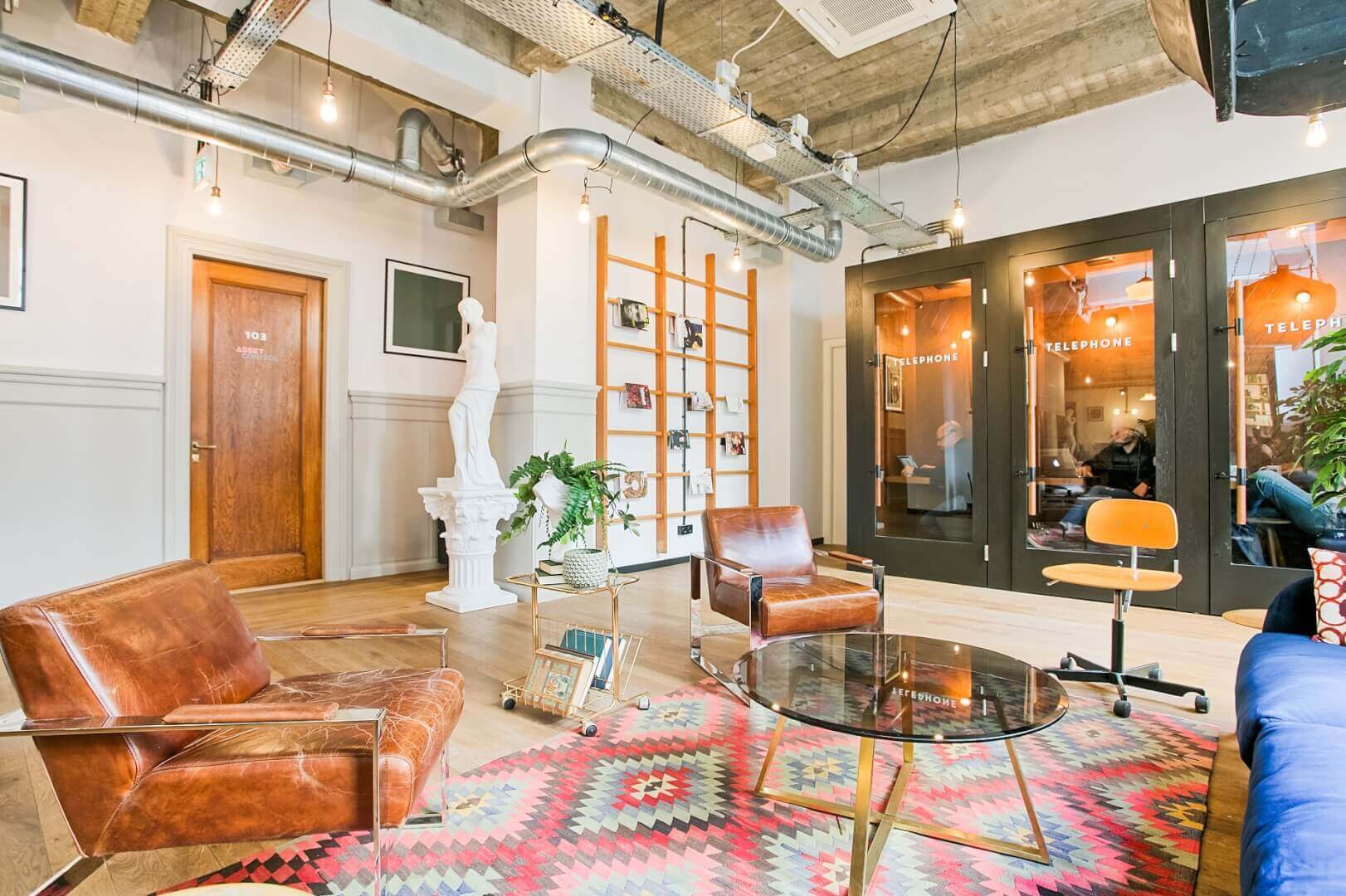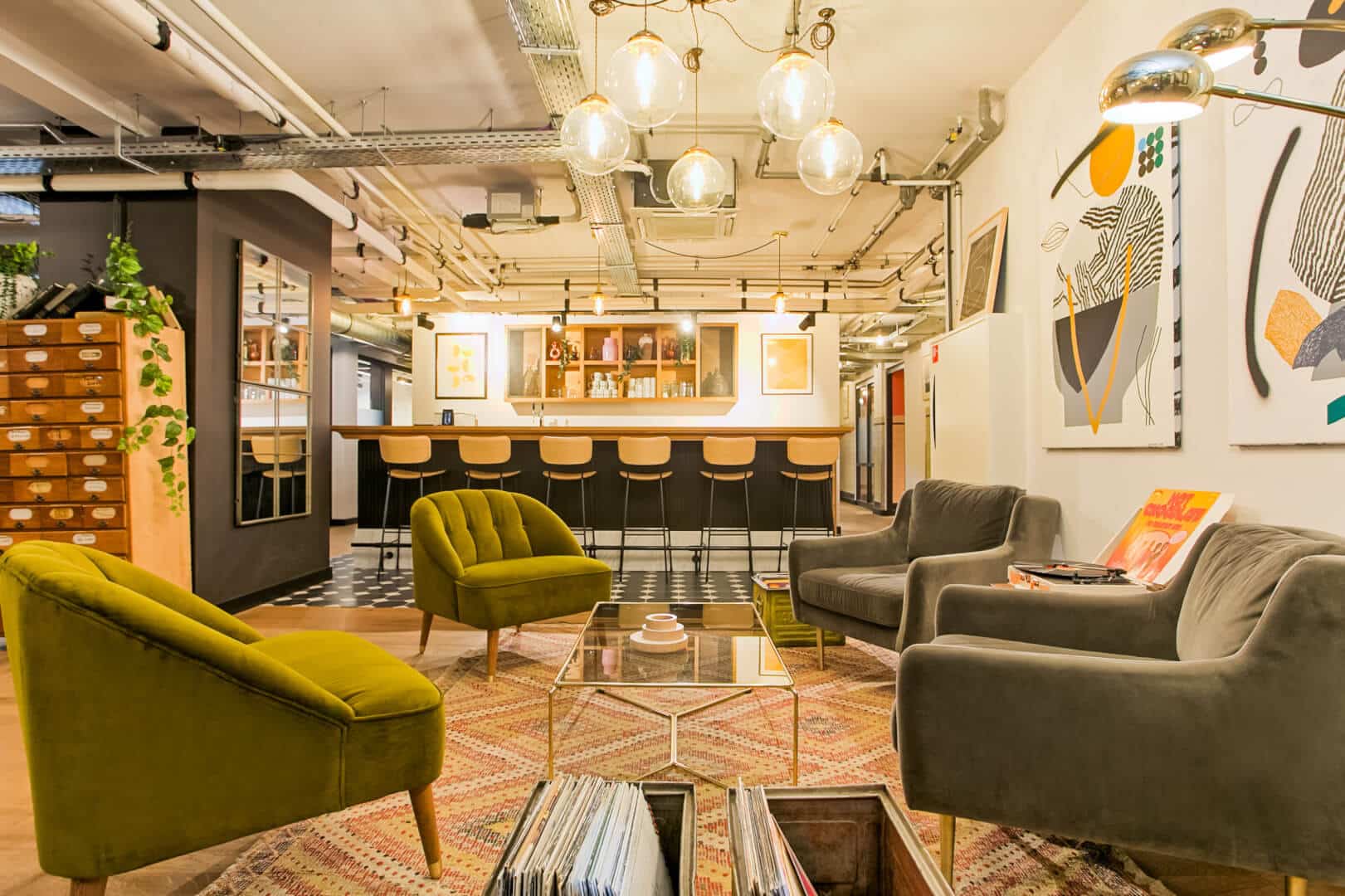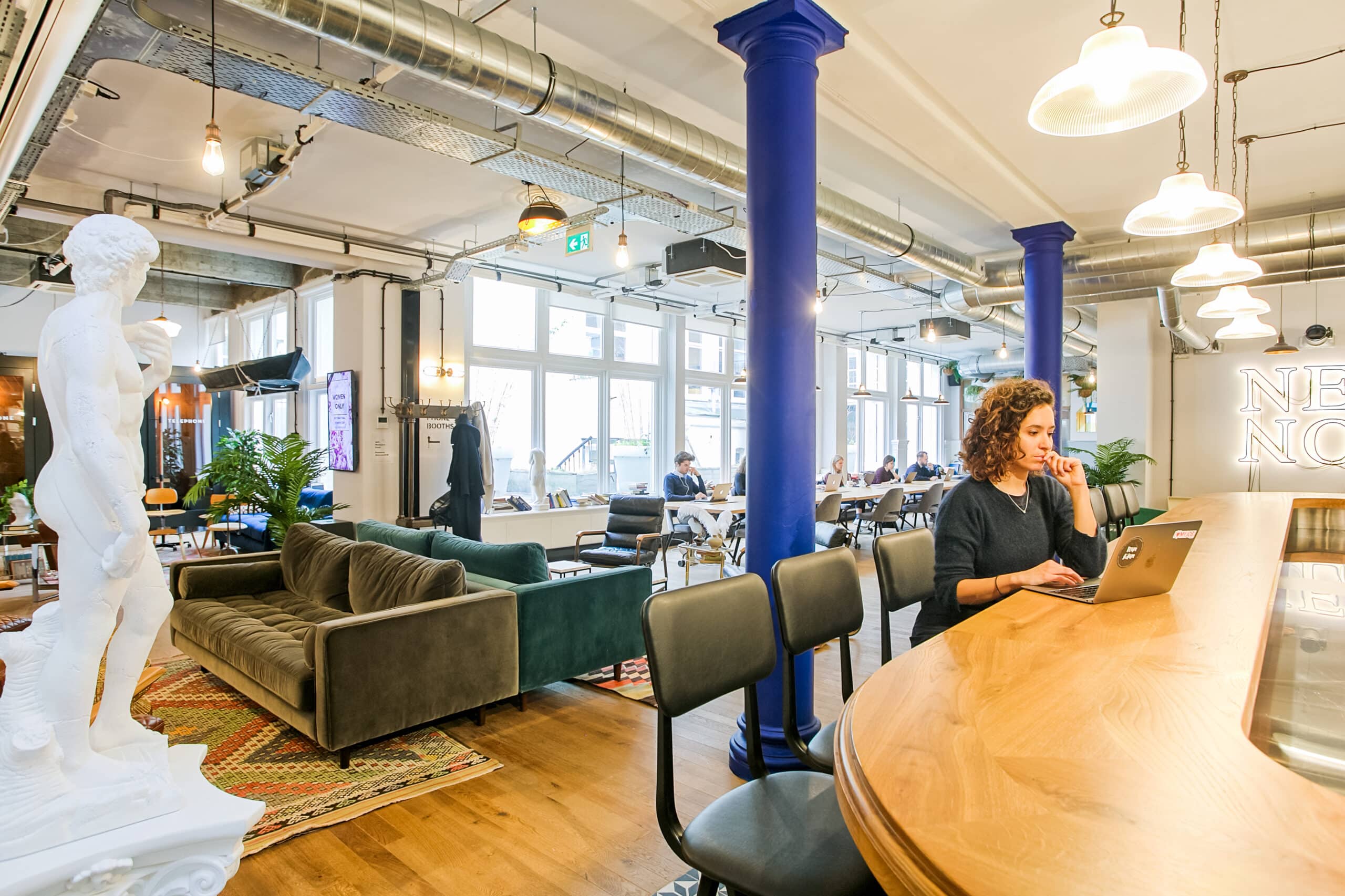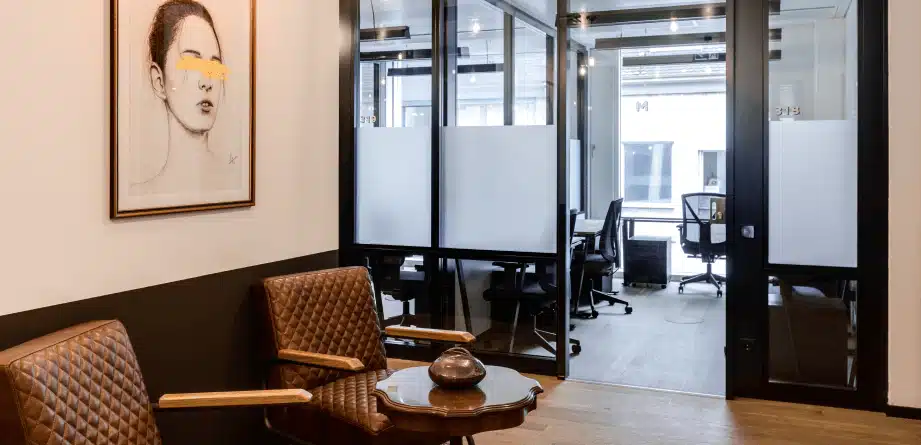
Amsterdam Office Space: The 2025 Transformation Guide
Amsterdam Office Space: The 2025 Transformation Guide
Amsterdam’s office landscape undergoes significant changes as companies reimagine workplace requirements. Businesses across the Dutch capital embrace shared workspace solutions, signaling a structural shift in commercial real estate preferences. This fundamental change reshapes how organizations view and utilize physical workspaces.
The 2025 Amsterdam office market reflects evolving priorities, with companies seeking spaces that accommodate fluctuating attendance while fostering productivity and company culture. Shared workspaces meet these needs by offering professional setups with flexible terms aligned to current business realities.
Effective real estate planning requires understanding these marketplace shifts. The rise of shared office solutions brings practical and strategic benefits for businesses navigating Amsterdam’s commercial property market.
The Shift to Flexible, Shared Office Spaces
Amsterdam’s office market has undergone remarkable transformation. Flexible shared workspaces flourish where long-term leases previously dominated, appearing across business districts including Zuidas, Amsterdam-Zuid, and the historic canal belt.
This evolution reflects changing business priorities throughout the Netherlands. Organizations value space commitments based on actual need rather than projected usage. Shared workspaces enable businesses to maintain professional environments without paying for unused square footage.
Small enterprises gain particular value from these arrangements. A fifteen-person company accesses facilities previously available only through costly leases. These spaces create positive client impressions while giving staff productivity-enhancing resources.
Mid-sized firms benefit similarly. Instead of investing in partially vacant floorplans, companies secure right-sized spaces matching actual attendance. This efficiency redirects resources toward core business growth.
Large corporations incorporate shared workspaces into their real estate strategies as satellite offices, innovation hubs, or expansion capacity. Rapid scaling capabilities provide competitive advantages in Amsterdam’s business sector.
These spaces foster networking impossible within isolated environments. Companies encounter complementary businesses, creating natural collaboration opportunities. These connections generate business development absent in conventional offices.
Amsterdam attracts global enterprises, and shared workspaces help international companies establish Netherlands operations without prolonged property searches or complex setup requirements. The city’s innovation culture complements these flexible workspace options.
Companies of all sizes benefit practically. Organizations avoid expenditures on furniture, technology, and construction. Workspace providers include these elements, letting companies direct capital toward strategic business growth investments.
How Hybrid Work Is Shaping Office Space Demand in Amsterdam
The widespread adoption of hybrid work approaches is fundamentally reshaping how Amsterdam companies view their workspace requirements. Employees now divide their time between home offices and company locations, creating variable occupancy patterns throughout the typical work week.
This new reality makes traditional office configurations increasingly inefficient for many organizations. A space designed for 100% occupancy sits underutilized on days when significant portions of staff work remotely. The financial implications of maintaining excess space become difficult to justify on company balance sheets.
Shared office spaces align perfectly with these hybrid work patterns. Companies can secure exactly the space they need based on actual usage rather than theoretical maximum capacity. This creates immediate cost efficiency while still maintaining professional work environments for team members on their in-office days.
The typical Amsterdam professional now places greater emphasis on workplace quality rather than quantity. When coming to the office, employees expect environments that effectively support focused work, collaboration, and meaningful social connection. Premium shared office spaces excel in providing these varied settings within a single well-designed location.
Businesses increasingly recognize that hybrid solutions work best when supported by purpose-designed environments. Rather than forcing new hybrid practices into traditional office layouts, shared workspaces offer intentionally designed zones for different activities. This thoughtful approach enhances productivity during office days while supporting the flexibility teams need.
How Landlords and Office Providers Are Adapting to Meet Demand
Property owners across Amsterdam recognize the market shift toward flexible arrangements. Traditional landlords now frequently partner with workspace operators or develop their own flexible offerings to remain competitive in this evolving landscape.
Office providers continuously refine their spaces based on user feedback and changing work patterns. The most successful locations feature exceptional acoustic design, allowing for both collaborative work and focused concentration within the same environment. This balance proves critical for hybrid teams who require varied work settings throughout their office days.
The aesthetic quality of shared offices continues to improve across the city. Premium providers understand that companies choose their spaces not just for functionality but as physical expressions of brand values. Design-forward environments with abundant natural light, living elements, and thoughtful layouts attract companies seeking to impress clients and motivate their teams.
Service levels distinguish leading providers in Amsterdam’s competitive market. Professional reception services, responsive technical support, and thoughtful hospitality touches create environments that feel both welcoming and efficient. These elements contribute significantly to overall workplace satisfaction for both permanent team members and visitors.
Location strategy has evolved among Amsterdam’s office providers in response to market demands. Beyond the established business districts, emerging neighborhoods like Amsterdam Noord and NDSM now attract creative companies seeking character-filled spaces at more accessible price points. This geographic diversification gives businesses more options for positioning their workplace to match both practical needs and brand identity.
Technology Integration
Strong technology forms the foundation of effective shared workspaces. Beyond basic connectivity, premium locations offer enterprise security, streamlined printing, and user-friendly booking systems enhancing workplace experiences.
Video meeting capabilities have become vital. Quality shared workspaces feature sound-treated meeting rooms with built-in audiovisual systems ensuring remote participants engage equally with on-site attendees.
Security systems balance protection with accessibility. Digital credentials let authorized users access appropriate areas while maintaining boundaries between companies sharing facilities.
Usage analytics benefit both providers and occupants. Understanding space utilization helps companies optimize real estate commitments while enabling providers to refine layouts based on actual behavior.
Environmental systems improve comfort and sustainability. Smart building technology adjusts lighting, temperature, and air quality based on occupancy, creating pleasant working conditions while reducing energy usage. These features align with Amsterdam’s sustainability commitments while promoting workplace health.
Preparing for the Future of Shared Office Spaces in Amsterdam
Amsterdam businesses planning for the remainder of 2025 should evaluate their current workspace strategy against emerging trends. Companies tied to traditional leases face important decisions as renewal dates approach. Conducting a thorough analysis of actual space utilization provides the foundation for making informed real estate decisions that support business objectives.
Forward-thinking organizations increasingly adopt portfolio approaches to their workspace strategy. Rather than centralizing all operations in a single location, they combine core headquarters space with distributed shared offices closer to where employees live. This hub-and-spoke model reduces commute times while maintaining company cohesion.
The financial advantages of shared spaces extend beyond direct real estate costs. Businesses also benefit from reduced facility management responsibilities, lower utility costs, and the elimination of capital expenditures associated with traditional offices. These combined savings improve overall business economics while creating more flexible operating models.
Amsterdam’s competitive talent market makes workplace experience increasingly important for employers. Companies offering flexible work locations gain advantages in recruitment and retention efforts. The ability to work from convenient locations resonates strongly with professionals seeking better work-life balance in an increasingly busy city.
Community remains a crucial consideration when selecting shared office space. The best providers create environments where meaningful connections occur naturally between member companies. These interactions foster the innovation ecosystem that makes Amsterdam such a vibrant business center.
Conclusion
Amsterdam’s office market shifts toward flexibility, with shared workspaces becoming central for companies of every size. This change combines practical benefits with strategic advantages as businesses adapt to hybrid working.
Successful organizations align workspace decisions with broader business goals beyond cost savings. The appropriate shared office enhances team effectiveness, builds organizational culture, and positions companies for growth within Amsterdam’s business community.
Review how your company might leverage flexibility, community, and professional infrastructure offered by Amsterdam’s quality shared workspaces. Your 2025 planning should consider how these environments support business objectives while providing necessary adaptability.
Mindspace provides exceptional shared workspace options across three central Amsterdam locations. Our Herengracht, Nieuwezijds, and Dam Square facilities stand ready to transform your operations and support Netherlands business growth. For more information, book a tour today or easily book online now!







